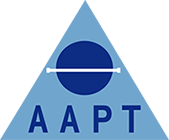News
AAPT to input into Science Council strategy
The AAPT, as a Member Body, were invited to input into a Board strategy day organised by the Science Council on 6th December.
A number of questions were posed and John Pitchers, Vice-Chair of the AAPT, replied accordingly.
How can the Science Council add value to improve registrant retention?
Provide more engagement opportunities, especially for lower grade professionals to engage with higher grades to promote progression (e.g. RSciTech to CSci).
Survey registrants and act on their feedback to ensure they feel like they have a stake in the organisation.
What offer does the Science Council have to provide to be attractive to professional bodies and employers?
Provide networking opportunities between organisations at a senior level.
Provide explicit support and advice for professional bodies when they are engaging / negotiating with Government.
Provide official Science Council accreditation of suitable events / training.
Provide coaching / mentoring for professional body staff / board members.
What can the Science Council do to make sure all science qualifications lead to registration?
Engage with exam boards / qualification providers to promote registration as a natural end-point.
Work with education providers to incorporate cost / application for registration into general qualification admin.
What is the value of registration in a post-Brexit world, and what is the Science Council’s role in in delivering this value?
Registration demonstrates a commitment to scientific excellence, which, in the post-Brexit world of diminishing funding for science, will be more important than ever in differentiating science professions and professionals, and winning funding, etc.
Perhaps the Science Council could lend its expertise to those making applications for funding / grants to ensure they have the best possible chance to get their share of the reducing research resources.
How can the Science Council demonstrate that it is delivering on its public benefit objectives?
Publish a checklist of aims / objectives in this area at the beginning of the year, with a progress report / gap analysis at year-end.
Seek views from your registrants / member bodies on what they see as their public benefit priorities.
What are the dilemmas facing the Science Council over the next 5 years?
Reducing funding in all sectors, with an attendant reduction in appetite for registration. Appetite for risk may increase in the face of austerity, leading to withdrawal from non-statutory registration.
Exodus of EU citizen scientists post-Brexit may deplete the register, leading to a funding crisis for the Science Council.
What ethical policy does the Science Council pursue? For instance, should registration / member body status be refused for those scientists / organisations engaged in animal testing?
What three things should the CEO/Board of Trustees focus on over the next year?
Strengthening the Science Council’s financial position.
Positioning the Science Council to be the natural fit for any professions that have been taken out of statutory regulation or aspire to regulation.
Conducting a review of how the Science Council can engage with registrants and member bodies in more innovative and tangible ways, clearly demonstrating benefits of membership.
Future working
The AAPT are in discussion with the Science Council to become a Licence Lite organisation – offering three levels of registration – Chartered Scientist, Registered Scientist and Registered Science Technician.
We shall keep members informed of all developments and a date of 11th January 2018 has been set aside for several Council members to be officially trained by the Science Council as assessors.
